1960 Olympic GamesRome, August 25-September 11 800 Roger Moens (30), a very experienced runner with a great competitive record, was the co-favorite with Paul Schmidt, who had been fastest over 800 in 1959 (1:46.2). George Kerr (22) of Jamaica, a talented newcomer, was also fancied. The demanding heats eliminated two other top picks, Brian Hewson of Great Britain and Stefan Lewandowski of Poland (second fastest over 800 in 1959). The 800 race almost always provides a close finish. This time five of the six finalists were in a position to win as they entered the final stretch. As expected Christian Waegli led the field through the first 600 in 25.4, 51.9 and 1:19.1. Schmidt of Germany and Kerr of Jamaica followed, with Snell of New Zealand and Moens of Belgium close behind. At 600 Moens pushed into second place behind Waegli. Behind Moens, Snell was on the inside, boxed in by Schmidt and Kerr.
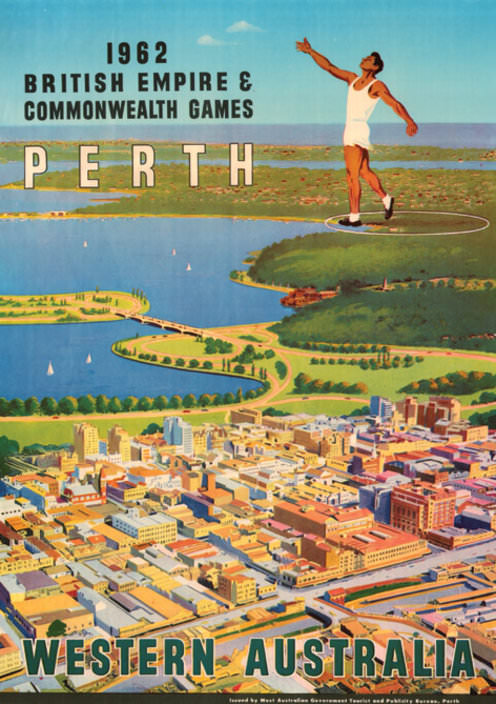
1962 BRITISH EMPIRE AND COMMONWEALTH GAMES Perth, Western AustraliaNovember 22-December 1 880This was a highlight race featuring two great rivals: Peter Snell of New Zealand and George Kerr of Jamaica. Although Snell had won six out of their seven encounters, Kerr was always able to push Snell to his limits. Kerr had finished third behind Snell in the Rome Olympics, after setting an Olympic record in the semis. And he was little more than half a second behind Snell in the final. Later in 1960, in New Zealand, Kerr defeated Snell with a very fast burst on the back straight. After that Snell was wise to this tactic and had beaten the Jamaican in subsequent races. Still in 1961, Kerr almost beat Snell in Dublin, when he used the same tactic that had worked before and once again caught Snell napping. Snell had to really work to catch Kerr and was level at 800 and ahead at 880. They had both clocked 1:46.4 for 800 and Snell ran the fastest 880 of the year with 1:47.2.
1962 European Championships Belgrade, Yugoslavia, September 12-16 800Ranked third and second in the world in 1960 and 1961, Paul Schmidt (31) of Germany was the 800 favorite. And he had looked good in winning his semi-final. His compatriot Manfred Matuschewski (23) also had good credentials, with a 9th place world rankings in 1960. Further, both German runners had been Olympic finalists in Rome, placing fourth and sixth. The two Russians, Krivosheyev and Bulishev, also looked like possible medalists. As well, Ireland’s Derek McCleane was considered to have a chance (his talented team-mate Noel Carroll was eliminated in the first round).
1964 Olympic GamesTokyo, October 10-24 800There was much speculation over the fitness and intentions of the current 800 WR holder and Olympic champion Peter Snell. Unlike his rivals, he had not raced in Europe over the summer. Further, he had run only 1:48.5 in the earlier New Zealand summer. He told the press that the 1,500 was his main goal, so some doubted whether he would run the 800. And Snell was giving nothing away as to his fitness or his plans. In fact he was not sure himself about the 800. He had trained incredibly hard over the New Zealand winter, at one stage averaging 100 miles a week over a 10-week period. This distance training was followed by a sharpening period. But this was all done in the New Zealand winter, so he was unable to run any fast time trials. Any concern over his 800 speed was eradicated soon after his arrival in Tokyo when he ran a 1:47.1 time-trial. This convinced him that he could do both the 800 and 1,500.
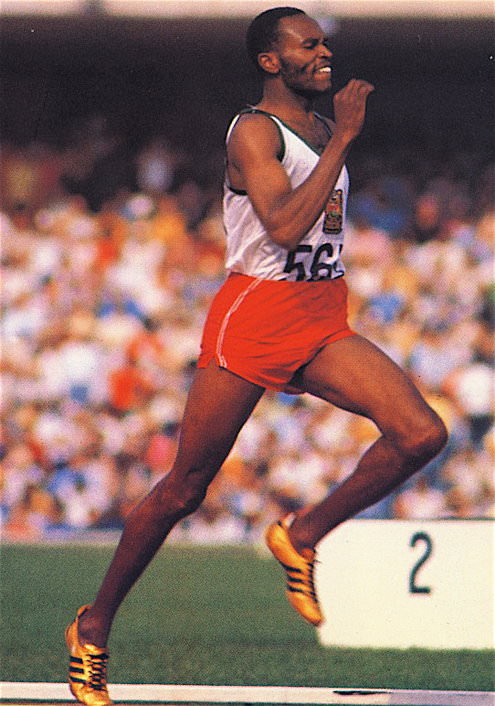
1966 British Empire & Commonwealth GamesKingston, JamaicaAugust 4-13 880 Three of the top four finishers from the Tokyo Olympic 800 final were in the field. George Kerr, running in front of his home crowd and finally running in a major 800 race without Peter Snell, looked like a good bet for the gold. But the younger Kenyan Kiprugut was another favorite after his impressive semi-final. And then Bill Crothers, who had looked so good finishing second in Tokyo, was fancied by many pundits. Finally there were two Australians, Ralph Doubell and Noel Clough, as well as the fast-improving Brit Chris Carter.
1966 European ChampionshipsBudapest, HungaryAugust 30-September 4 800There was a stellar field for the final of this event. Favorite was the new Euro record-holder Franz-Josef Kemper (1:44.9). Fellow West German Bodo Tummler, who had won the 1,500 three days earlier, was also fancied. The Great Britain also had two finalists: British record-holder Chris Carter and John Boulter. But the runner who received the most interest was the current Euro champion Manfred Matuschewski of East Germany. In 1962 he had shocked everyone with his phenomenal finishing kick. But in the Tokyo Olympics he was eliminated in the semifinals. Was he at 27 past his best?
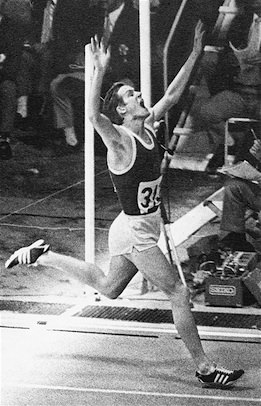
1969 EUROPEAN CHAMPIONSHIPSATHENS, SEPTEMBER 16-20 Cold-War politics led to a boycott by the West German team for this major championships. The issue was the eligibility of the fastest 5,000 runner entered: Jurgen May. May had defected from East Germany to West Germany two years and three months previously. East Germany had erased May’s name from all their athletic records; West Germany was anxious to have him in their team for these championships. The IAAF had to rule on May’s eligibility and used the three-year qualification period for any athlete changing countries. As May had not met this three-year residency requirement, he was not allowed to compete. In response, the whole West German team withdrew. Thus the championships lost one of the very best teams. In the running events, this meant that Walter Adams, Bodo Tummler, Harald Norpoth and, of course, Jurgen May were denied a chance to compete. British runners took advantage of this and racked up an impressive tally of three gold, one silver and two bronze medals in the five running events.
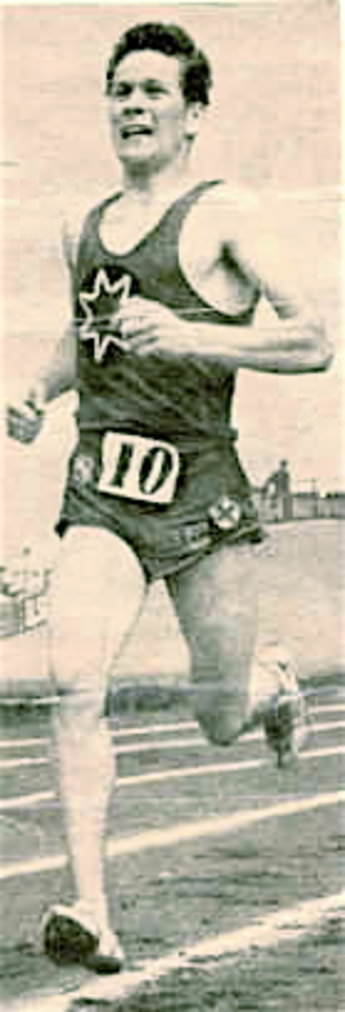
Profile: Alan Simpsonb. 1940 Alan Simpson was one of the most successful 1,500 runners during the 1960s. In his prime this fierce competitor rarely lost a race. He had an amazingly successful record in the two-a-side international competitions that were very popular at that time, winning 14 of his 17 races for his country. He set British records for 1,500, the Mile and 2,000, won the Mile British title three consecutive years (1963-65), and represented England in the International Cross-Country Championships. His best performance in major competitions was fourth in the 1964 Olympic 1,500; as well, though neither performance pleased him, he won a silver medal at the 1966 Commonwealth Games and placed fourth in the 1966 European 1,500.
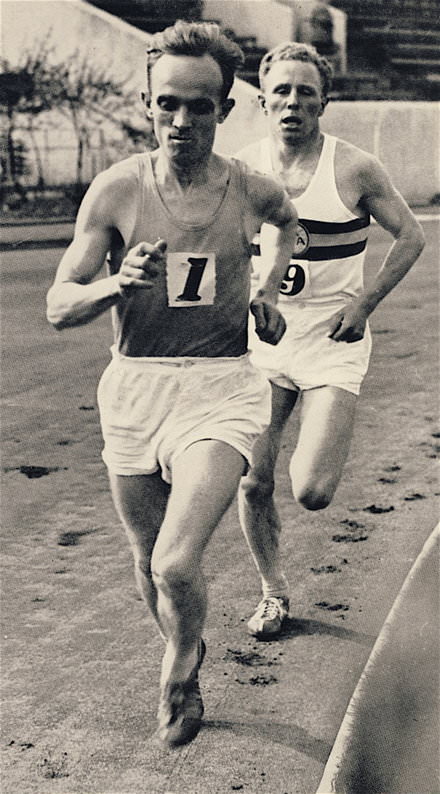
PROFILE: BASIL HEATLEY 1933-2019 From 1948 through to the 1960s, English runner Basil Heatley improved steadily, winning countless titles on the road, track and country. Among his most notable achievements were a World-Record 10 Miles, an International Cross-Country title and three National Cross-Country titles. As he approached retirement, the one achievement he lacked was participation in a major games. He had come close, narrowly missing selection for the 1958 Empire Games and for the 1960 Olympics, and then being injured during the build-up to the 1962 Empire and European games.
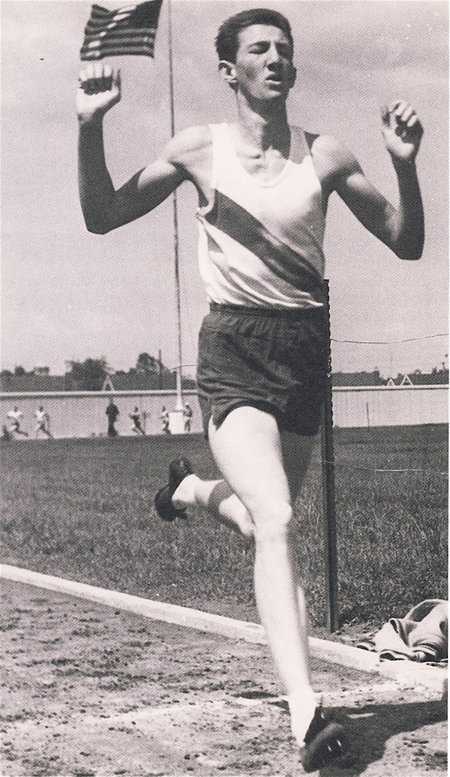
Bob Schul: Profile b. 1938 American Bob Schul is best known for his stylish and confident win in the 1964 Olympic 5,000 in Tokyo. He also ran one WR (Two Miles), set five American records and won three American titles. His achievements are all the more remarkable because he suffered throughout his career from severe allergies and ensuing asthma. Schul’s success as a runner is testimony to his determination and competitive spirit. Early DaysMany great distance runners have a history of hard physical work in childhood, and Schul is no exception. The second of four brothers, he grew up on an Ohio farm, where he was inevitably given chores involving physical work. “When you live on a farm,” he says, ‘there is work to be done, and you do it as there are no excuses…. The consistent, hard work of a farmer is similar to the consistent effort necessary to be a great athlete.” (Bob Schul Interview: garycohenrunning .com) One of his jobs was bringing in the cows from the pasture: “So after school I began a long trek across the road and down to the pasture…. During hot days, the cows would go deeper into the woods where it was cooler…. To get the job done more quickly, I began running to find them.” (Schul, In the Long Run, p.16) But his childhood was far from perfect because he suffered badly from allergies, almost dying from an attack at 15 months. Nevertheless, Schul participated in team sports and made his high-school basketball and football teams. And he showed good endurance in cross-country and the Mile. He ran 5:10 in his freshman year, 4:50 the next year, and 4:34 for his last two years in high school.